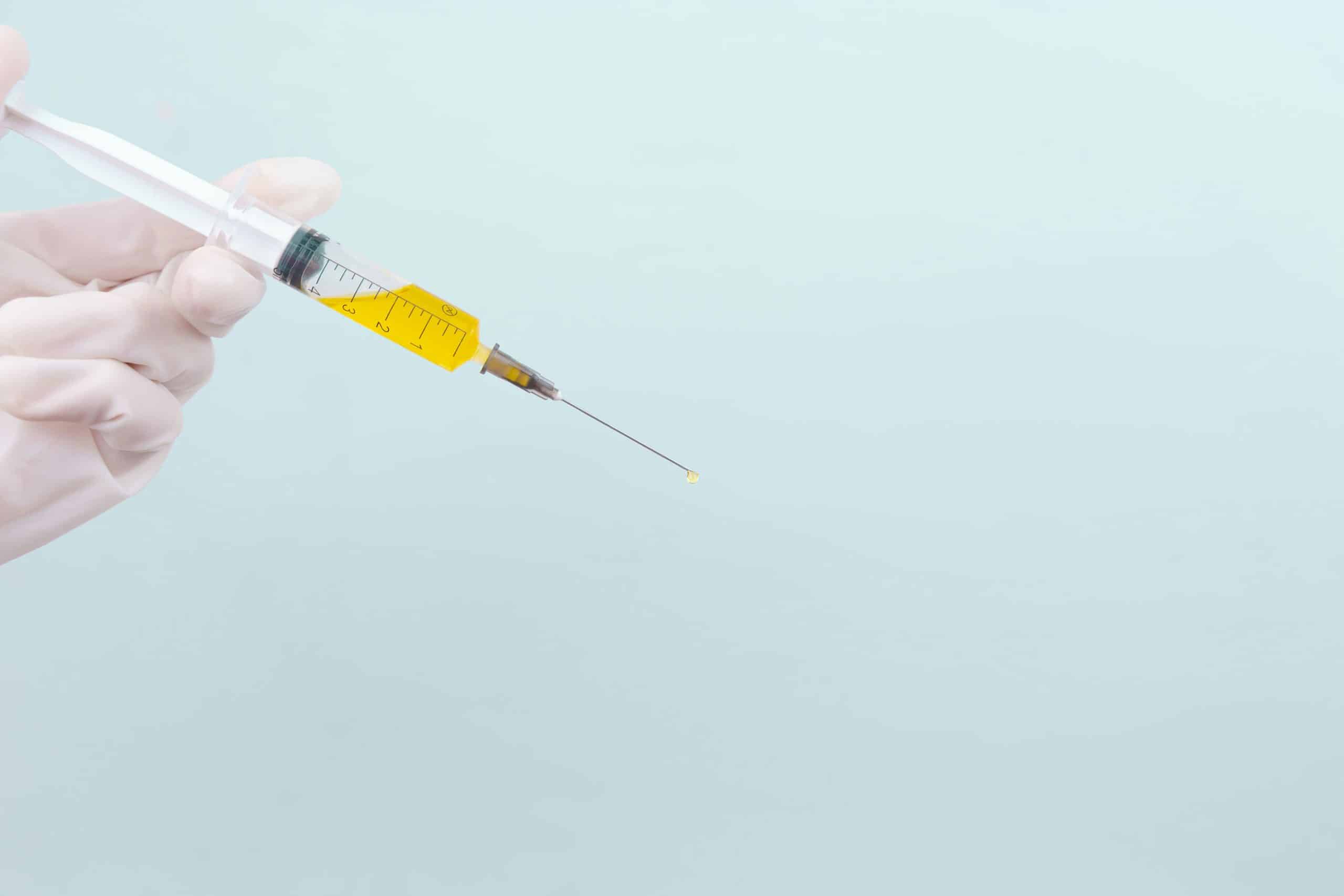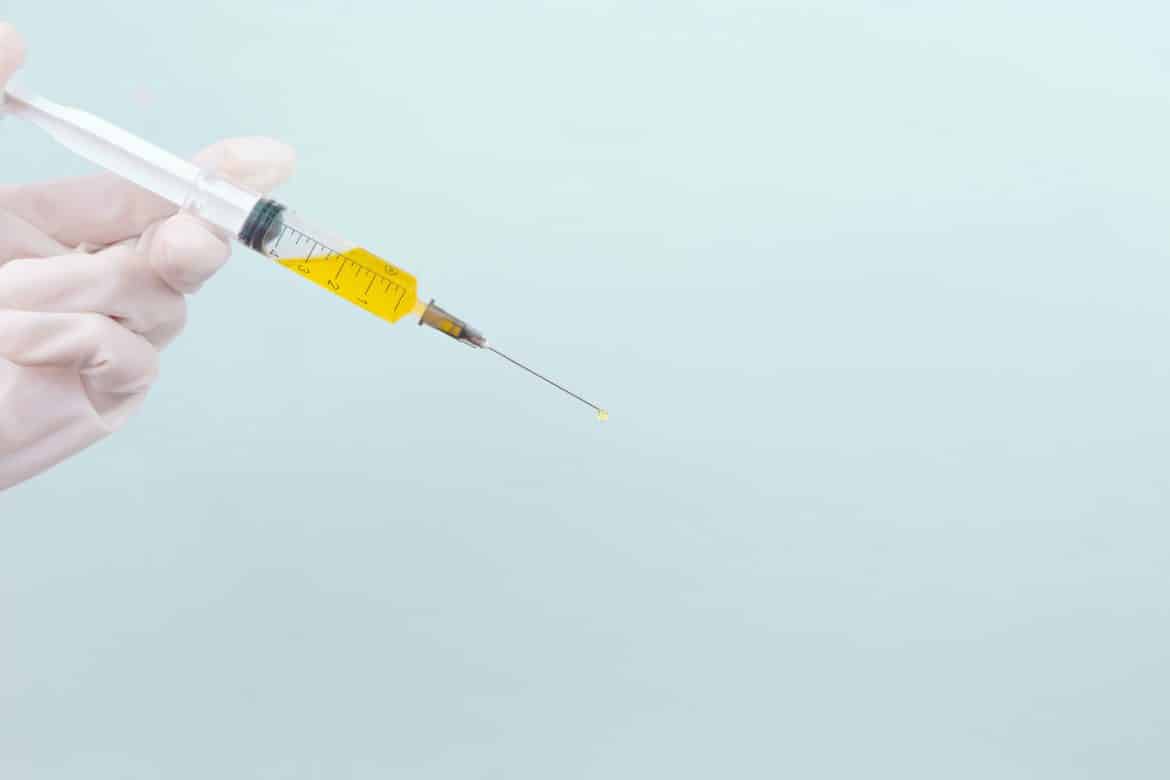Keeping your furry friend healthy and happy is a top priority for any dog owner. That's why regular veterinary check-ups are absolutely vital for dogs. These check-ups play a crucial role in maintaining your dog's overall well-being and catching any potential health issues before they become significant problems. From preventing diseases to monitoring weight and dental health, regular check-ups ensure that your pup receives the best care possible. So, book that appointment with your vet today and give your canine companion the gift of good health.

This image is property of images.unsplash.com.
1. Preventative Care
Regular veterinary check-ups are essential for the overall health and well-being of your beloved dog. Preventative care plays a crucial role in ensuring that your furry friend remains happy and healthy for years to come. Here are some key aspects of preventative care that every dog owner should be aware of.
1.1 Early Detection of Health Issues
Early detection of health issues can make a significant difference in the prognosis and treatment options for your dog. During regular veterinary check-ups, your veterinarian will conduct a thorough examination to identify any potential health concerns. This may include checking for lumps, evaluating the condition of the coat and skin, examining the eyes and ears, and assessing overall mobility. By catching health issues early on, you can address them promptly and prevent them from worsening.
1.2 Vaccinations and Preventative Medications
Vaccinations and preventative medications are crucial in safeguarding your dog against various diseases and parasites. Your veterinarian will review your dog's vaccination history and administer any necessary vaccines to prevent common illnesses such as distemper, parvovirus, and rabies. Preventative medications, including flea, tick, and heartworm prevention, will also be discussed and prescribed to protect your furry friend from external parasites and heartworm disease.
1.3 Dental Care
Dental health is often overlooked but is an essential aspect of your dog's overall well-being. Regular dental care can prevent conditions such as periodontal disease, tooth decay, and gum infections. During veterinary check-ups, your veterinarian will perform a dental examination, clean your dog's teeth, and provide recommendations for at-home dental care. Maintaining proper dental hygiene can help prevent pain, difficulty eating, and potential infections.
1.4 Nutrition and Weight Management
Proper nutrition and weight management play a pivotal role in keeping your dog healthy and preventing obesity-related issues. Your veterinarian will assess your dog's dietary needs based on factors such as age, breed, activity level, and any existing health conditions. They will provide balanced diet recommendations and discuss appropriate portion sizes and feeding schedules. Regular check-ups allow for monitoring your dog's weight and making necessary adjustments to maintain an ideal body condition.
2. Maintaining Overall Health
Ensuring the overall health of your dog involves various aspects that require attention and monitoring. By focusing on these areas, you can help your furry friend live a long and vibrant life.
2.1 Physical Examination
During regular veterinary check-ups, your veterinarian will conduct a comprehensive physical examination to assess your dog's overall health. This examination typically includes evaluating the body condition, checking for abnormalities in the eyes, ears, and skin, feeling for lumps or abnormalities in the abdomen, and examining the musculoskeletal system. By examining your dog regularly, your veterinarian can identify any potential health concerns and address them promptly.
2.2 Monitoring Vital Signs
Monitoring your dog's vital signs is an integral part of maintaining their overall health. This includes checking their heart rate, respiratory rate, temperature, and evaluating their blood pressure. These vital signs provide valuable insights into your dog's health and help detect any underlying conditions or changes in their well-being. Regular monitoring of vital signs during check-ups can ensure early detection and prompt treatment if necessary.
2.3 Blood Tests and Laboratory Work
Blood tests and laboratory work are vital for assessing your dog's internal health and detecting any underlying issues that may not be evident during a physical examination. These tests can evaluate blood cell counts, organ function, and screen for common diseases. Regular blood tests and laboratory work can help identify potential health concerns before they become symptomatic and allow for early intervention and treatment.
2.4 Parasite Control
Effective parasite control is important for the well-being of your dog and the prevention of diseases. Regular veterinary check-ups provide an opportunity to discuss and implement a comprehensive parasite control plan. This may include preventative measures against fleas, ticks, and heartworms, as well as deworming protocols to eliminate common intestinal parasites. By staying proactive in parasite control, you can safeguard your dog's health and well-being.
3. Identifying and Managing Chronic Conditions
Unfortunately, some dogs may develop chronic conditions that require ongoing management and care. Timely identification and appropriate management of these conditions are crucial for maintaining their quality of life.
3.1 Arthritis and Joint Issues
Arthritis and joint issues are common among dogs, especially as they age. Regular veterinary check-ups allow for the early detection of these conditions through physical examinations, joint evaluations, and gait analysis. If arthritis or joint issues are diagnosed, your veterinarian can develop a tailored treatment plan that may include pain management, physical therapy, joint supplements, and lifestyle modifications to improve your dog's mobility and comfort.
3.2 Skin Problems
Skin problems, such as allergies, infections, or dermatitis, can significantly affect your dog's quality of life. During check-ups, your veterinarian will carefully examine your dog's skin, coat, and paws for any signs of irritation, redness, hair loss, or infection. By identifying and treating these issues promptly, your veterinarian can alleviate discomfort and prevent secondary complications.
3.3 Allergies
Allergies can cause a range of symptoms in dogs, including itching, skin rashes, ear infections, and digestive issues. Regular veterinary check-ups are essential for diagnosing allergies and developing an individualized management plan. Your veterinarian may recommend dietary changes, antihistamines, specialized shampoos, or allergy testing to identify specific triggers. With proper management, you can help reduce your dog's symptoms and improve their quality of life.
3.4 Heart Disease
Heart disease can be a silent killer in dogs, and early detection is crucial for effective management. During check-ups, your veterinarian may listen to your dog's heart and lungs using a stethoscope, evaluate their breathing, and check for any abnormal heart sounds or murmurs. If signs of heart disease are detected, further diagnostic tests, such as echocardiography, may be recommended to assess the heart's structure and function. An early diagnosis allows for the prompt initiation of medication and lifestyle adjustments to manage heart disease and improve your dog's cardiac health.
4. Detecting and Treating Illnesses
Even with the best preventative care measures in place, dogs can still fall ill. Regular veterinary check-ups are vital for the timely detection and appropriate treatment of various illnesses.
4.1 Infections and Infectious Diseases
Infections and infectious diseases can pose serious health risks to your dog. During veterinary check-ups, your veterinarian will assess your dog's overall health and inquire about any symptoms or changes in behavior. They may perform diagnostic tests to check for common infections or diseases. Timely identification of infections and proper treatment, including antibiotics or antivirals, can help your dog recover quickly and prevent the spread of contagious diseases.
4.2 Cancer
Cancer is a devastating diagnosis for any pet owner. Regular veterinary check-ups play a critical role in the early detection of cancer or the identification of suspicious growths. Your veterinarian will conduct physical examinations, perform fine-needle aspirates or biopsies if necessary, and discuss any concerning symptoms or changes in your dog's behavior. If cancer is suspected, further diagnostic tests, such as X-rays, ultrasound, or blood tests, may be recommended. Early detection of cancer increases the chances of successful treatment and management options.
4.3 Respiratory Problems
Respiratory problems in dogs can stem from various causes, including infections, allergies, or underlying medical conditions. During check-ups, your veterinarian will evaluate your dog's breathing, listen for any abnormal lung sounds, and assess overall respiratory health. Diagnostic tests, such as X-rays or blood gas analysis, may be performed to further evaluate respiratory function. By identifying and addressing respiratory issues promptly, your veterinarian can help improve your dog's breathing and overall respiratory health.
4.4 Gastrointestinal Issues
Gastrointestinal issues, such as vomiting, diarrhea, or chronic digestive problems, can significantly impact your dog's well-being. During check-ups, your veterinarian will inquire about any gastrointestinal symptoms and perform a thorough examination of your dog's abdomen. Additional tests, such as fecal analysis or imaging, may be recommended to identify the underlying cause of the problems. With appropriate intervention and tailored treatment plans, your veterinarian can help alleviate gastrointestinal distress and improve your dog's digestive health.

This image is property of images.unsplash.com.
5. Behavioral and Emotional Health
A dog's behavioral and emotional health is just as important as their physical well-being. Regular veterinary check-ups provide an opportunity to address any behavioral concerns or emotional needs your dog may have.
5.1 Anxiety and Aggression
Anxiety and aggression can significantly impact your dog's quality of life and potentially pose risks to their safety and the safety of others. During check-ups, your veterinarian can evaluate your dog's behavior, discuss any anxiety or aggression issues, and provide recommendations for management. This may include behavior modification techniques, training, environmental modifications, or the incorporation of calming supplements or medications. Addressing these concerns promptly can help provide a more peaceful and balanced life for both you and your furry friend.
5.2 Training Recommendations
Training is an essential aspect of raising a well-behaved and happy dog. Regular veterinary check-ups offer an opportunity to discuss training recommendations and address any specific behavioral challenges you may be facing. Your veterinarian can provide guidance on positive reinforcement techniques, obedience training, and addressing specific behavioral concerns. By implementing appropriate training strategies, you can strengthen the bond with your dog and promote their overall well-being.
5.3 Psychological Well-being
Just like humans, dogs can experience psychological stress or emotional imbalances. Regular veterinary check-ups allow for assessing your dog's psychological well-being and addressing any concerns. Your veterinarian may evaluate their overall demeanor, discuss any signs of distress or changes in behavior, and provide recommendations to improve their mental well-being. This may include incorporating mental stimulation activities, ensuring a comfortable and secure environment, or considering the use of behavioral therapies. Prioritizing your dog's psychological well-being can contribute to their overall happiness and quality of life.
6. Senior Dog Care
As your dog ages, their health needs change, and additional considerations come into play. Regular veterinary check-ups become even more crucial in ensuring the well-being of senior dogs.
6.1 Age-related Health Issues
Senior dogs are prone to age-related health issues, such as arthritis, dental problems, cognitive decline, and organ dysfunction. Regular check-ups allow for the early detection of these issues and the implementation of appropriate management strategies. Your veterinarian will conduct thorough examinations, evaluate mobility and cognitive function, and may recommend additional diagnostic tests to assess your dog's overall health.
6.2 Monitoring and Managing Chronic Conditions
Senior dogs often require management for chronic conditions such as arthritis, heart disease, or kidney problems. Regular veterinary check-ups provide an opportunity to monitor these conditions, adjust treatment plans as needed, and ensure that your dog's quality of life is maintained. Your veterinarian will assess any changes in your dog's symptoms, medication needs, or potential complications.
6.3 Pain Management
Pain management is a critical aspect of senior dog care. Your veterinarian will evaluate your dog's mobility, assess any signs of discomfort or pain, and discuss appropriate pain management options. This may include medications, physical therapy, supplements, or lifestyle modifications to improve their comfort and overall well-being.
6.4 Quality of Life Considerations
Maintaining a high quality of life for your senior dog is of utmost importance. Regular check-ups provide an opportunity to discuss any concerns or changes in your dog's behavior or happiness. Your veterinarian can provide recommendations to enhance your dog's quality of life, such as modifying their living environment, incorporating appropriate exercise routines, or considering complementary therapies. By focusing on their specific needs, you can ensure that your senior dog remains happy, comfortable, and cherished throughout their golden years.

This image is property of images.unsplash.com.
7. Dental Health
Dental health is an often overlooked aspect of your dog's overall well-being. Neglecting dental care can lead to painful dental conditions and potentially impact your dog's overall health. Regular veterinary check-ups are essential for maintaining your dog's dental health.
7.1 Dental Examination and Cleaning
During veterinary check-ups, your veterinarian will perform a thorough dental examination to assess the condition of your dog's teeth and gums. They will look for signs of tartar buildup, decay, gum disease, or any abnormalities. If necessary, your veterinarian may recommend a professional dental cleaning to remove tartar and plaque that cannot be removed through brushing alone. Regular dental cleanings can help prevent dental diseases and improve your dog's overall oral health.
7.2 Prevention of Periodontal Disease
Periodontal disease is a common dental condition that affects many dogs. Regular veterinary check-ups provide an opportunity to discuss and implement preventative measures to combat this disease. Your veterinarian can provide guidance on at-home dental care, including brushing techniques, dental diets, dental chews, or water additives. Preventing periodontal disease through proactive dental care can reduce the risk of tooth loss, gum infections, and potential systemic health issues.
7.3 Management of Gum Infections and Tooth Decay
If your dog develops gum infections or tooth decay, regular check-ups allow for prompt recognition and management. Your veterinarian can provide appropriate treatment options, such as antibiotics, dental extractions, or other interventions. By addressing these issues early on, you can help alleviate pain and prevent further complications.
8. Nutrition and Weight Management
Proper nutrition and weight management are crucial elements of your dog's overall health and longevity. Regular veterinary check-ups offer an opportunity to discuss and optimize your dog's dietary needs.
8.1 Balanced Diet Recommendations
During check-ups, your veterinarian will assess your dog's dietary needs based on factors such as age, breed, activity level, and any specific health conditions. They can provide tailored recommendations for a balanced diet that meets your dog's nutritional requirements. Feeding your dog a high-quality, well-balanced diet can support their immune system, maintain a healthy weight, and promote overall well-being.
8.2 Weight Monitoring and Obesity Prevention
Obesity in dogs can have severe health consequences, including an increased risk of diabetes, joint problems, and cardiovascular disease. Regular veterinary check-ups allow for monitoring your dog's weight and body condition. Your veterinarian can evaluate your dog's weight and offer guidance on nutrition, portion control, and exercise routines to maintain a healthy weight. By preventing obesity, you are helping to ensure your dog's overall health and vitality.
8.3 Dietary Supplements
In some cases, dietary supplements may be beneficial for your dog's health. During check-ups, your veterinarian can discuss and recommend appropriate dietary supplements based on your dog's specific needs. This may include joint supplements to support mobility, omega-3 fatty acids for coat and skin health, or probiotics for digestive health. However, it is important to consult with your veterinarian before starting any supplements to ensure their efficacy, safety, and proper dosage.
9. Vaccinations and Preventative Medications
Vaccinations and preventative medications are vital components of your dog's healthcare regimen. Regular veterinary check-ups ensure that your dog receives the necessary vaccinations and preventative care to keep them protected from various diseases and parasites.
9.1 Core Vaccinations
Core vaccinations are essential for all dogs and protect against common and potentially life-threatening diseases. During check-ups, your veterinarian will review your dog's vaccination history and administer or recommend upcoming core vaccinations. This may include vaccines for rabies, distemper, parvovirus, and canine adenovirus. Staying up-to-date with core vaccinations is crucial for your dog's health and for preventing the spread of contagious diseases.
9.2 Non-core Vaccinations
Non-core vaccinations may be recommended based on your dog's lifestyle, geographical location, or exposure risks. During check-ups, your veterinarian can discuss non-core vaccines such as Bordetella (kennel cough), canine influenza, or Lyme disease. Considering your dog's individual needs and circumstances, your veterinarian will provide you with recommendations on whether these non-core vaccines are necessary for your dog's optimal protection.
9.3 Flea, Tick, and Heartworm Prevention
Fleas, ticks, and heartworms pose significant health risks to dogs. Regular veterinary check-ups allow for discussions on flea and tick prevention methods, as well as heartworm prevention. Your veterinarian can recommend safe and effective preventative medications that best suit your dog's needs and lifestyle. Consistent use of these preventative medications is critical in protecting your dog from these potential dangers.
9.4 Deworming
Deworming protocols are essential for preventing and treating intestinal parasites in dogs. During check-ups, your veterinarian may recommend deworming medication to eliminate common internal parasites such as roundworms, hookworms, or tapeworms. By following a deworming schedule, you can help maintain your dog's gastrointestinal health and prevent infestations.
Regular veterinary check-ups are vital for the overall health and well-being of your canine companion. By prioritizing preventative care, addressing chronic conditions, and seeking prompt treatment when needed, you can ensure that your dog lives a long, healthy, and happy life. Remember, your veterinarian is your greatest partner in providing the best care for your dog, so be sure to schedule regular check-ups to give your furry friend the quality care they deserve.


